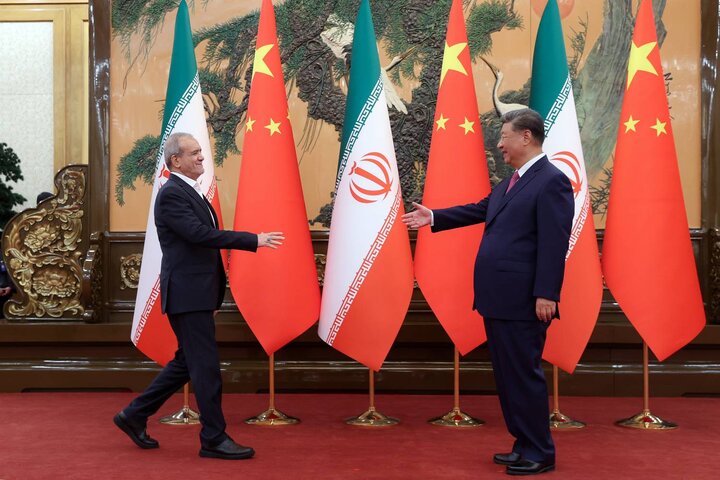According to Shada, the visit of Dr. Masoud Pezeshkian, President of the Islamic Republic of Iran, to China to attend the 25th Summit of the Shanghai Cooperation Organization (SCO) in Tianjin and Beijing, which commenced on August 31, 2025, stands out as one of Iran’s key diplomatic engagements this year.
With an emphasis on enhancing economic and trade relations, the visit provided an opportunity to deepen cooperation under Iran’s full membership in the SCO (granted in 2023) and the 25-year Comprehensive Cooperation Agreement with China (signed in 2021).
At the conclusion of the Tianjin meeting, more than 20 documents and statements were signed, addressing economic issues including trade, investment, and technology.
Strengthening bilateral trade and energy exports
A central focus of the visit was the expansion of trade between Iran and China. During Dr. Pezeshkian’s meeting with Chinese President Xi Jinping, both sides reaffirmed their commitment to implementing the 25-year strategic agreement, which encompasses investment in energy, infrastructure, and technology.
Iran proposed the formation of a working group to address the supply of essential medicines and equipment, alongside a cooperation mechanism in emerging technologies—initiatives aimed at attracting Chinese investment in the health and technology sectors.
In a separate meeting with Russian President Vladimir Putin, the implementation of the long-term Eurasian Agreement was discussed. The agreement, recently ratified by Iran’s parliament, is expected to boost trade with member states and facilitate Iran’s access to regional markets, thereby contributing to economic growth.
Countering Unilateralism through the SCO
The Shanghai Cooperation Organization serves as a platform for countering unilateralism and Western sanctions. In meetings with leaders from China, Russia, Tajikistan, and Pakistan, the Iranian President underscored the importance of strengthening economic cooperation to mitigate the impact of sanctions. Iran also proposed initiatives such as the establishment of a centre for security studies and collaboration in new technologies, included in the summit’s final communiqué. These measures aim to reinforce economic infrastructure and attract foreign investment.
During the visit, the Iranian Minister of Economy, in his capacity as head of the Iran-China Joint Commission, actively pursued efforts to expand trade and eliminate banking and customs barriers. In meetings with leaders from Turkey, Tajikistan, and Pakistan, emphasis was placed on Islamic unity and the economic empowerment of Muslim-majority countries.
In a meeting with Turkish President Recep Tayyip Erdogan, Dr. Pezeshkian expressed Iran’s readiness to cooperate on removing trade barriers and enhancing commercial exchanges. Erdogan, in turn, criticised the activation of the nuclear trigger mechanism as counterproductive and voiced support for Iran’s peaceful nuclear programme.
These meetings reflect a broader effort to strengthen bilateral trade and address economic challenges. Discussions with the President of Tajikistan and the Prime Minister of Pakistan also highlighted the need for dialogue and cooperation within the Islamic world to bolster regional economic integration.
Such interactions may help expand economic corridors and diversify Iran’s trading partnerships.


